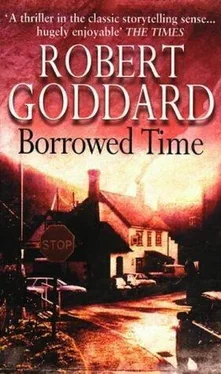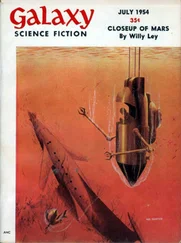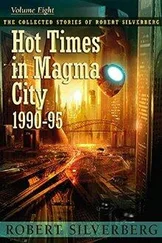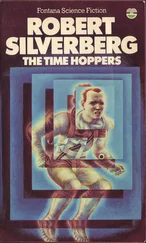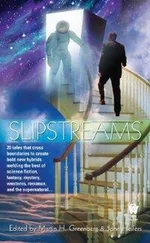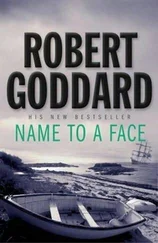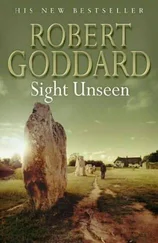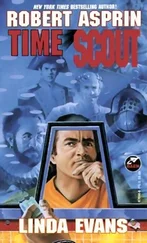Robert Goddard - Borrowed Time
Здесь есть возможность читать онлайн «Robert Goddard - Borrowed Time» весь текст электронной книги совершенно бесплатно (целиком полную версию без сокращений). В некоторых случаях можно слушать аудио, скачать через торрент в формате fb2 и присутствует краткое содержание. Жанр: Триллер, на английском языке. Описание произведения, (предисловие) а так же отзывы посетителей доступны на портале библиотеки ЛибКат.
- Название:Borrowed Time
- Автор:
- Жанр:
- Год:неизвестен
- ISBN:нет данных
- Рейтинг книги:5 / 5. Голосов: 1
-
Избранное:Добавить в избранное
- Отзывы:
-
Ваша оценка:
- 100
- 1
- 2
- 3
- 4
- 5
Borrowed Time: краткое содержание, описание и аннотация
Предлагаем к чтению аннотацию, описание, краткое содержание или предисловие (зависит от того, что написал сам автор книги «Borrowed Time»). Если вы не нашли необходимую информацию о книге — напишите в комментариях, мы постараемся отыскать её.
Borrowed Time — читать онлайн бесплатно полную книгу (весь текст) целиком
Ниже представлен текст книги, разбитый по страницам. Система сохранения места последней прочитанной страницы, позволяет с удобством читать онлайн бесплатно книгу «Borrowed Time», без необходимости каждый раз заново искать на чём Вы остановились. Поставьте закладку, и сможете в любой момент перейти на страницу, на которой закончили чтение.
Интервал:
Закладка:
I’d anticipated a lonely vigil and had brought Adrian’s preliminary report on Viburna Sportswear to study while I waited. I couldn’t concentrate on it, of course, but it gave me something to look at instead of the other hang-dog occupants of the landing. Which explains why the first I knew of Bella’s arrival on the scene was when she sat down beside me.
“Hello, Robin,” she whispered. “What’s happening inside?”
“Bella! I didn’t know you were coming.”
“Neither did I. Until I decided I wanted to. I shan’t go in. Keith’s forbidden me to. But I thought at least I could have lunch with you all. Perhaps dinner afterwards.”
“I’m sure Keith will be delighted to see you.”
“But you’re not?”
“I didn’t say that.”
“No. And you don’t say half the things you mean. But I was married to your brother for nearly twenty years. I know the signs.”
“I’m sure you do. And I’m glad you haven’t forgotten Hugh altogether.”
“So hard.” She looked at me more in disappointment than anger. “The living are more important than the dead, Robin. Remember that.”
“I’ll try to.”
“I’ll put your tetchiness down to nerves. This waiting can’t be easy for you.”
“I’m not nervous.”
“Good. That’ll make your evidence all the more convincing.” She lit a cigarette and offered me one, knowing I’d given up years ago but enjoying the momentary hesitation before I refused. “But then,” she added, blowing out a lungful of smoke, “what can be more convincing than the truth?”
What I’d have said in reply I’ll never know, because at that moment the door leading from the court opened and Rowena came out to join us. She was blinking rapidly and fingering her hair, much but not all of her composure gone. In its place I’d have expected to see relief, some visible sign of the liberation she should have felt. But instead there was more anxiety than when she’d gone in. As if testifying had added to her problems, not resolved them. As if she hadn’t said-or been allowed to say-what she really wanted to. And there was a furtiveness as well. She looked as if she wanted to run away and hide. From all of us.
She saw Bella first and shaped an uncertain smile. Then Sarah appeared at her elbow and led her towards us. I tried to think of something both meaningless and comforting to say. But, before I could, the usher beckoned to me. My turn had come. And there was time to exchange no more than a glance with Rowena as I went in. But a glance was enough. The mask had fallen now. Beneath it, there was despair.
The court had none of the Dickensian appurtenances I’d somehow imagined. Glass-topped partitions, pale wood panelling and discreet grey carpeting drained away the archaism of gown and wig. It was a place where divorce settlements and tax evasion could be discussed in a seemly atmosphere. Rape and murder surely weren’t topics that belonged in its antiseptic environment. Yet there was the judge, gorgeously robed. There was the coat of arms above his head. There, beneath him, were the lawyers and clerks in their orderly chaos of books and papers. And there, in the large glazed dock at the rear of the room, flanked by two prison officers, was the accused: Shaun Andrew Naylor.
I’d not seen him before, of course. And I hardly had the chance to study him now. A lean sallow-faced man with thick black hair leaning forward in his chair, as if straining to catch every word that was said. He looked up as I stepped into the witness-box and caught my eye for less than a second. I had the fleeting impression of someone bent on memorizing my features in every detail. Then I put the thought aside and took the oath.
The prosecuting counsel gave me an easy ride, as he was bound to. He let me present my well-rehearsed portrait of the relaxed and attractive woman I’d spoken to, briefly and inconsequentially, on Hergest Ridge. He encouraged me to specify the time at which we’d parted and to say how I could be so sure. And wisely he left it there.
The defence counsel didn’t, of course. He wanted to know about the offer of a lift. Could it have been construed as the offer of something else? All this I parried easily enough, as he must have anticipated. But I couldn’t deny the fact that she’d offered me a lift. Nor the theoretical possibility that she had more than a car journey in mind. These were purely negative points, of course. But he must have hoped they’d stick in the jurors’ minds. I hoped he was wrong. Glancing across at them, I reckoned he probably was. They’d heard the evidence to date. They were already convinced-like the rest of us-that the defendant was guilty as charged. It was going to take more than logic-chopping to shift them.
As if to ensure this was so, the judge asked me to clarify my statement that there was nothing in Lady Paxton’s manner or in anything she’d said to me that implied an ulterior motive. I was happy to do so. And while I was about it, he glared at the defending counsel as if to suggest he didn’t like the line his cross-examination had taken. With that I was discharged. Sir Keith nodded appreciatively to me as I passed him on the way out. And I risked a single parting glance in Naylor’s direction. But he was stooping close to the gap between glass barrier and wooden partition for a whispered word with his solicitor. He wasn’t interested in me any more. My encounter with the man I believed to have raped and murdered Louise Paxton had been more fleeting than my encounter with Louise herself. I didn’t expect ever to see him again. I didn’t expect I’d ever need to.
Lunch was a rushed and frugal affair in the bar of the Grand Hotel, a short walk from the courts. Rowena said little. None of us, in fact, seemed to have much of an appetite and the satisfaction we expressed at the events of the morning had a faintly hollow ring. I hadn’t heard Rowena’s testimony, of course, and she hadn’t heard mine. But, according to Sir Keith, who’d heard both, they’d been equally effective. As far as he was concerned, a convincing and coherent account of his wife’s behaviour during the last day of her life had been placed on the record and was now unchallengeable. As to that, I assumed the defence counsel might still have something to say. But he couldn’t know just how indefinable the doubts were that afflicted those who’d met Louise Paxton on 17 July 1990. We didn’t put them into words, Rowena and I. But I was coming more and more to realize that we were both aware of them. And they were the same. The impression Louise had left on her daughter was the impression she’d left on me. She’d been changing before our eyes. Altering in mood and intention. Slipping out of sight and understanding. Retreating into camouflage we could never hope to penetrate. Or else discarding some long-worn disguise. Her past. Her life. Her death. Her future. They were all one now. But that day had seen them trembling on a razor’s edge. And we’d watched, unwittingly, as they’d fallen.
Perhaps I should have tried to express some of this to Rowena. Not for the purpose of striking up a sympathetic rapport. Just so she’d know she wasn’t alone. But my thoughts were too confused. And nobody would have wanted me to, anyway, except perhaps Rowena herself. Her father and sister desired nothing more than a clean and simple end to the trial. Naylor convicted and locked up. The key thrown away. And the wife and mother they’d lost preserved for ever in the amber of their idealized memories.
Who could begrudge them? Not me. Nor Rowena, as I could tell by her strained but determined expression. She meant to see this through for their sakes. Perhaps Bella had reminded her, as she’d reminded me, that the living matter more than the dead. So we like to believe, anyway. So Rowena and I certainly believed. Then.
Читать дальшеИнтервал:
Закладка:
Похожие книги на «Borrowed Time»
Представляем Вашему вниманию похожие книги на «Borrowed Time» списком для выбора. Мы отобрали схожую по названию и смыслу литературу в надежде предоставить читателям больше вариантов отыскать новые, интересные, ещё непрочитанные произведения.
Обсуждение, отзывы о книге «Borrowed Time» и просто собственные мнения читателей. Оставьте ваши комментарии, напишите, что Вы думаете о произведении, его смысле или главных героях. Укажите что конкретно понравилось, а что нет, и почему Вы так считаете.
